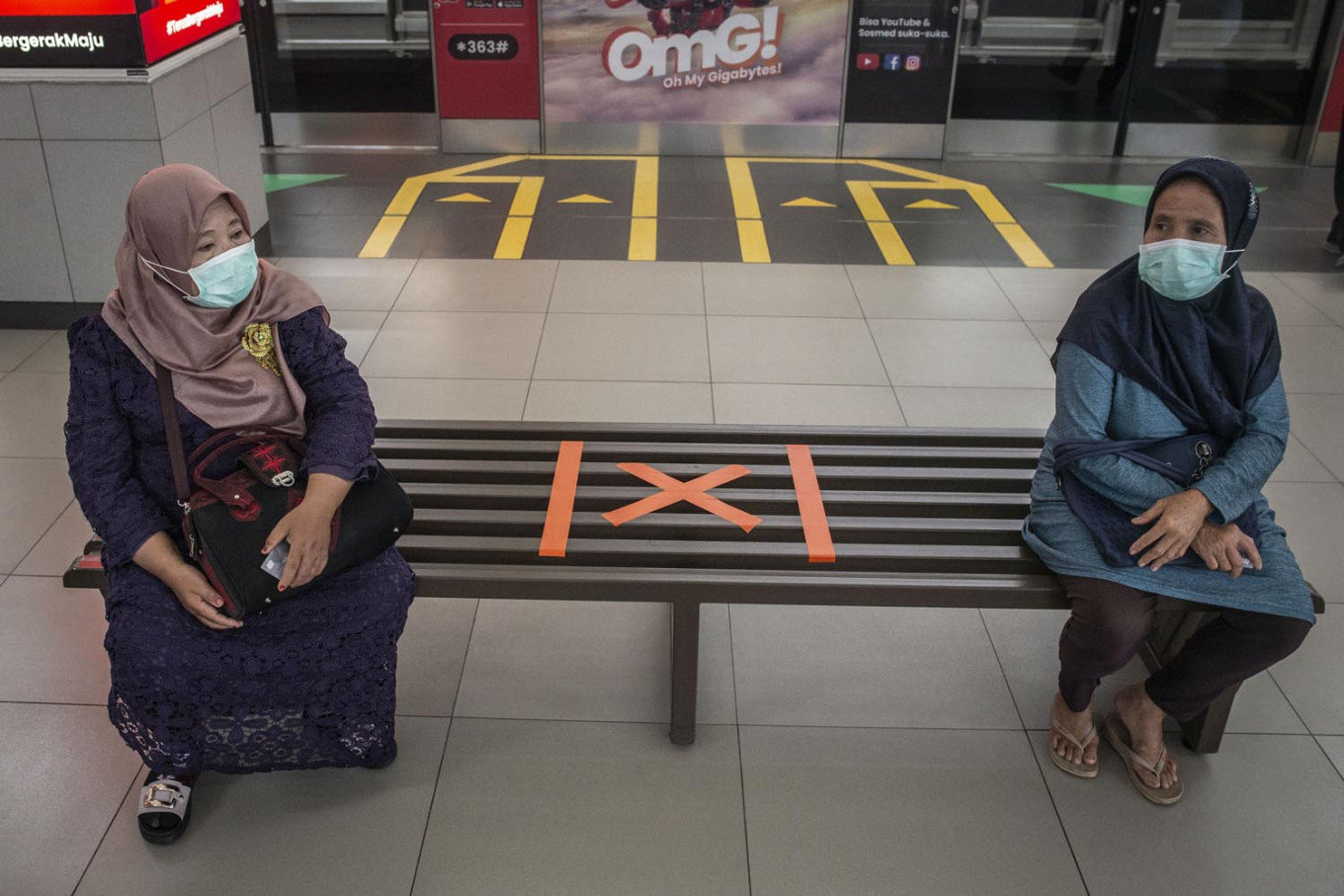Popular Reads
Top Results
Can't find what you're looking for?
View all search resultsPopular Reads
Top Results
Can't find what you're looking for?
View all search resultsCOVID-19: Anies urged to impose more aggressive, calculated lockdown
Change text size
Gift Premium Articles
to Anyone
D
espite declaring an emergency status over the COVID-19 pandemic, Jakarta Governor Anies Baswedan needs to step up his game to seriously contain the spread of the disease over concerns that the public may not follow the instructions issued by his office, experts are saying.
Anies declared a state of emergency over the increasing numbers of COVID-19 patients in Jakarta on Friday. He urged everyone – including corporations, social organizations and religious groups – to take drastic action to prevent the spread of the disease during the state of emergency.
Starting Monday, the city administration is closing all entertainment venues and offices for the next 14 days, calling for companies to arrange for their employees to work remotely. According to the gubernatorial decree he signed on Friday, the status could be extended depending on the situation.
Jakarta has become the hardest hit province with nearly 70 percent of fatalities.
Indonesia recorded 450 confirmed cases with 38 fatalities as of Saturday afternoon.
The decision followed previous measures taken by the administration issued on March 13 when Anies announced that the city would close 14 tourist spots, schools and suspend the weekly Car Free Day.
Read also: BREAKING: Jakarta declares COVID-19 emergency, urges offices to suspend operation for 14 days
Trubus Rahadiansyah, the head of the Center of Public Policy Studies at Trisakti University, said that while he commended Anies for taking strict measures to halt the spread of the virus, he suggested that consequences or sanctions must also be imposed on residents and business entities failing to comply with the orders.
“As long as there’s no sanction, or any consequence, for not obeying the administration’s orders, the policy will be useless,” he said on Saturday.
He cited examples of instructions issued by Anies and President Joko “Jokowi” Widodo last week that called for residents to stay at home, but which led to crowds on public transportation as people still went to work.
Trubus said the emergency status might resemble a soft lockdown since those orders corresponded to the “large-scale social restriction measures” as stipulated by Article 59 of the 2018 Health Quarantine Law. However, he said he failed to comprehend whether it could legitimately be called a soft lockdown since the government had not issued any derivative regulations from the law to define the “lockdown” itself.
“Whether it was called a semi-lockdown or a soft lockdown, I think we can agree that the administration is currently imposing large-scale social restriction measures,” Trubus said.
Trubus also said that residents and businesses would have a high chance of violating the orders since the administration had not allowed them to prepare for the instructions since everything was announced suddenly.
The lower-level administrations, such as community units and neighborhood units, probably had not yet come to grips with the situation and properly disseminated information to their residents.
Read also: COVID-19: Anies urges Jakartans to avoid traveling outside the city for three weeks
A London-based business consulting group, the Economist Intelligence Unit, said in a recent report that aggressive containment policies in countries like Indonesia and the Philippines may have less effect than in some other countries. The group said that many families in the two countries often live together with older relatives. Moreover, millions of people in insecure work arrangements could also face a loss of income, which would force younger members of households to continue to go out to work, the group added.
Bhima Yudhistira Adhinegara, an economist at the Institute for Development of Economics and Finance, echoed Trubus, saying that businesses in Jakarta would probably still require their employees to go to their offices while entertainment places would still operate because of the lack of preparation by the administration before announcing the orders.
He said the instructions would burden businesses, especially entertainment places, since they would receive fewer profits during the emergency, while at the same time they were also required to pay recurring operating expenses, such as employee salaries, regional taxes and utility costs.
“The administration was supposed to address those issues before announcing the policy. If businesses can’t handle their expenses, they might open their businesses again amid the emergency period,” he said.
Bhima urged the administration to swiftly provide compensation so that businesses would comply with the instructions.
For example, all businesses could be released from paying regional taxes for a certain period. The administration, he added, could also help them negotiate with banks to postpone the installment periods of their business loans, along with the interest. (glh)










